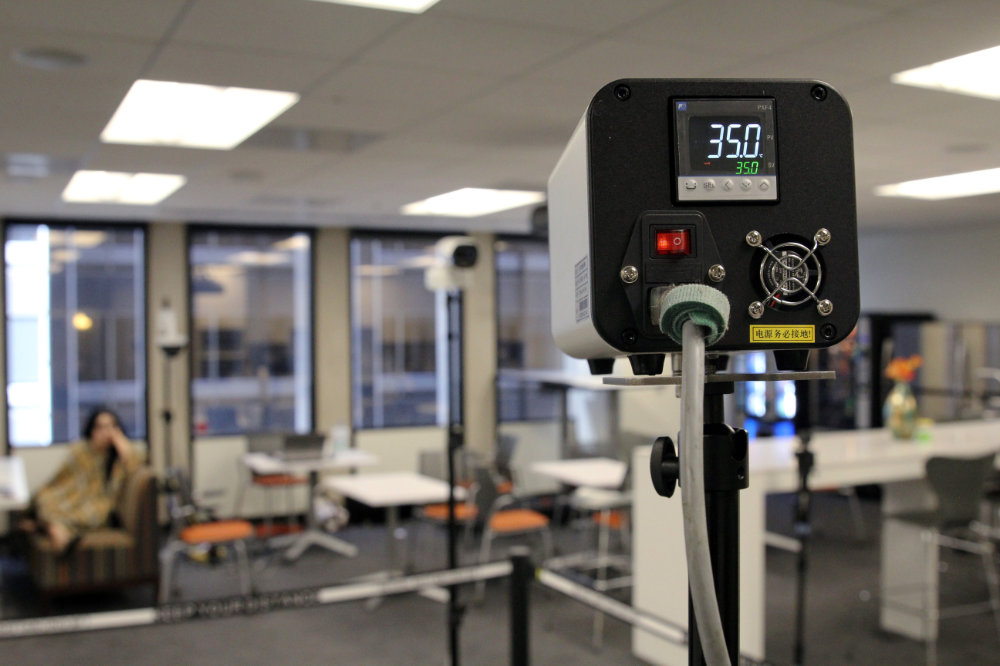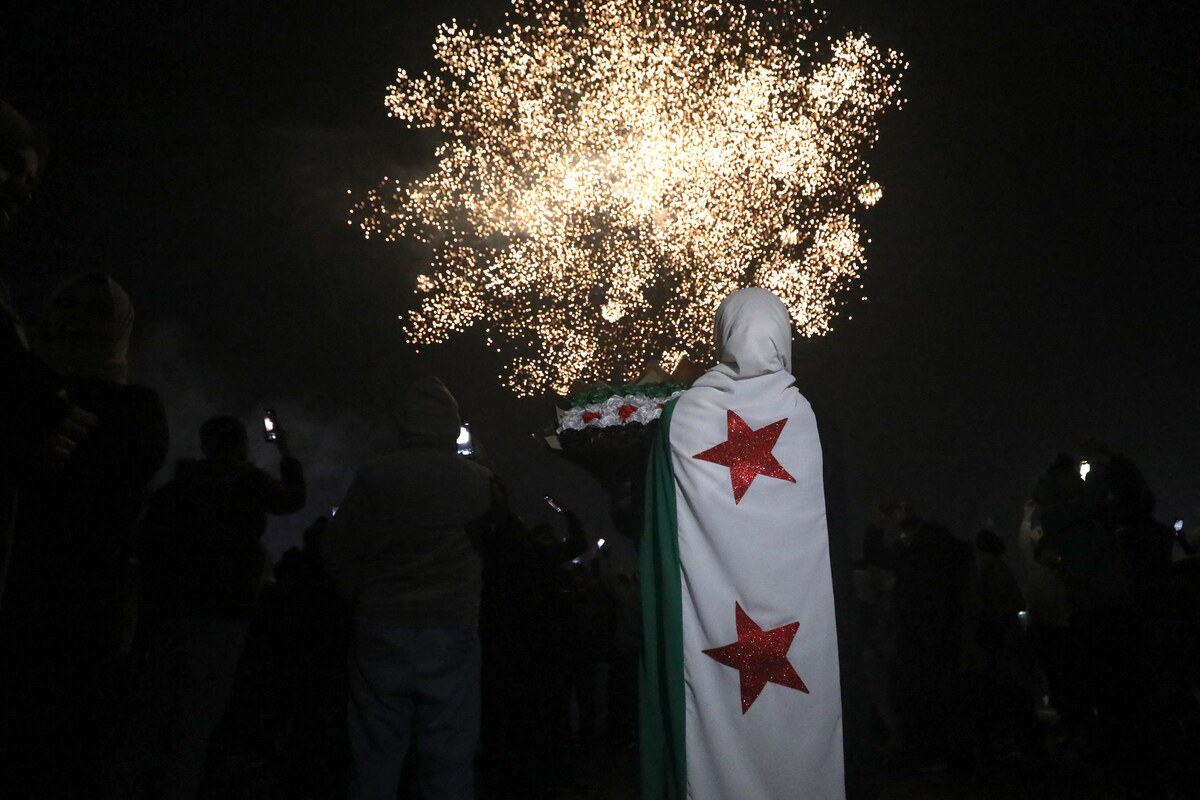NEW YORK: Amazon has bought cameras to take temperatures of workers during the coronavirus pandemic from a firm the US blacklisted over allegations it helped China to detain and monitor the Uighurs and other Muslim minorities, three people familiar with the matter said.
China’s Zhejiang Dahua Technology shipped 1,500 cameras to Amazon this month in a deal valued at close to $10 million. At least 500 systems from Dahua — the blacklisted firm — are for Amazon’s use in the US.
The Amazon procurement, which has not been previously reported, is legal because the rules control US government contract awards and exports to blacklisted firms, but they do not stop sales to the private sector.
However, the US “considers that transactions of any nature with listed entities carry a ‘red flag’ and recommends that US companies proceed with caution,” according to the Bureau of Industry and Security’s website. Dahua has disputed the designation.
BACKGROUND
The coronavirus has infected staff from dozens of Amazon warehouses, ignited small protests over allegedly unsafe conditions and prompted unions to demand site closures.
The deal comes as the US Food and Drug Administration warned of a shortage of temperature-reading devices and said that it would not halt certain pandemic uses of thermal cameras that lack the agency’s regulatory approval. Top US-based maker FLIR has faced an up to weeks-long order backlog, forcing it to prioritize products for hospitals and other critical facilities.

The rear of a "black body" device that emits infrared light for use with thermal cameras is seen during a demonstration in San Francisco, California, on April 24, 2020. (REUTERS/Nathan Frandino)
Amazon declined to confirm its purchase from Dahua, but said its hardware complied with national, state and local law, and its temperature checks were to “support the health and safety of our employees, who continue to provide a critical service in our communities.”
The company added it was implementing thermal imagers from “multiple” manufacturers, which it declined to name. These vendors include Infrared Cameras and FLIR, according to employees at Amazon-owned Whole Foods who saw the deployment. FLIR declined to comment.
Dahua, one of the biggest surveillance camera manufacturers globally, said it does not discuss customer engagements and it adheres to applicable laws. Dahua is committed “to mitigate the spread of the COVID-19” through technology that detects “abnormal elevated skin temperature — with high accuracy,” it said.
The US Department of Commerce, which maintains the blacklist, declined to comment.
The FDA said it would use discretion when enforcing regulations during the public health crisis as long as thermal systems lacking compliance posed no “undue risk” and secondary evaluations confirmed fevers.
Dahua’s thermal cameras have been used in hospitals, airports, train stations, government offices and factories during the pandemic. International Business Machines placed an order for 100 units, and the automaker Chrysler placed an order for 10, one of the sources said. In addition to selling thermal technology, Dahua makes white-label security cameras resold under dozens of other brands such as Honeywell, according to research and reporting firm IPVM.

A Dahua Technology thermal imaging camera is seen during a demonstration in San Francisco, California, on April 24, 2020. (REUTERS/Nathan Frandino)
Honeywell said that some but not all its cameras are manufactured by Dahua, and it holds products to its cybersecurity and compliance standards. IBM and Chrysler’s parent Fiat Chrysler Automobiles NV did not comment.
The Trump Administration added Dahua and seven other tech firms last year to the blacklist for acting against US foreign policy interests, saying they were “implicated” in “China’s campaign of repression, mass arbitrary detention, and high-technology surveillance against Uighurs, Kazakhs, and other members of Muslim minority groups.”
More than one million people have been sent to camps in the Xinjiang region as part of China’s campaign to root out terrorism, the UN has estimated.
Dahua has said that the US decision lacked “any factual basis.”
Beijing has denied mistreatment of minorities in Xinjiang and urged the US to remove the companies from the list.
A provision of US law, which is scheduled to take effect in August, will also bar the federal government from starting or renewing contracts with a company using “any equipment, system, or service” from firms including Dahua “as a substantial or essential component of any system.”
Amazon’s cloud unit is a major contractor with the US intelligence community, and it has been battling Microsoft for an up to $10 billion deal with the Pentagon.
Top industry associations have asked Congress for a year-long delay because they say that the law would reduce supplies to the government dramatically, and US Secretary of State Mike Pompeo said last week that policies clarifying the implementation of the law were forthcoming.
The coronavirus has infected staff from dozens of Amazon warehouses, ignited small protests over allegedly unsafe conditions and prompted unions to demand site closures.
Temperature checks help Amazon to stay operational, and the cameras — a faster, socially distant alternative to forehead thermometers — can speed up lines to enter its buildings.





























